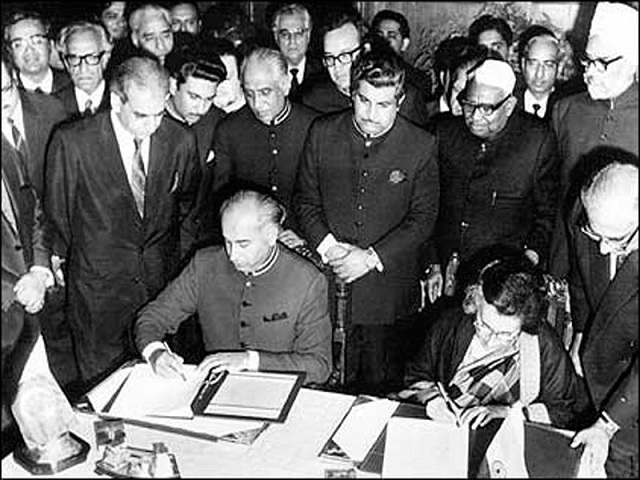

After India took strict measures against Pakistan like suspension of Indus water treaty, Pakistan too declared the suspension of the 1972 Simla Agreement and announced the closure of the Wagah border with India. It has also halted all cross-border movement from India via Wagah and shut its airspace to Indian carriers. Decisions after Pahalgam terror attack. Click on the link
The Simla Agreement was signed on July 2, 1972 by the then Prime Minister Indira Gandhi and Pakistan's President Zulfikar Ali Bhutto as an attempt to restore peace after India Pakistan war of 1971. The war had led to the creation of Bangladesh by liberating East Pakistan. The agreement marked a formal end to hostilities between the two nations and set out a roadmap for future engagement based on peaceful coexistence and bilateralism.
Peaceful settlement of disputes : Both nations pledged to resolve all disputes—including the Kashmir issue—bilaterally and without third-party intervention. This was a major shift from earlier stances that had invited or accepted international mediation.
Respect for sovereignty: The two countries agreed to respect each other’s territorial integrity, political independence, and non-interference in internal affairs.
Redrawing of the ceasefire line: The ceasefire line in Jammu and Kashmir, as it stood on December 17, 1971, was re-designated as the Line of Control (LoC). Both sides committed not to unilaterally alter the LoC — an attempt to stabilise the contested region.
Normalisation of diplomatic ties: The agreement called for steps to restore diplomatic, economic, and cultural relations, including resumption of communications, travel, and trade links that had been severed.
Release of prisoners of war: As part of the deal, India agreed to release over 93,000 Pakistani prisoners of war — one of the largest post-war prisoner releases in history.
Despite the afgreement, Pakistan's intentions to weaken India and it's anti Indian activities have continued. India need to take a strong stand.
Comments
Write Comment